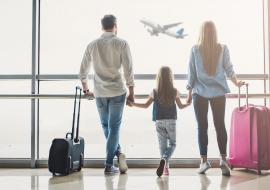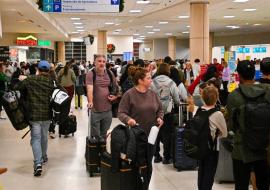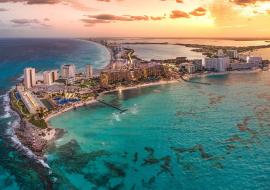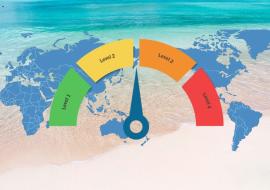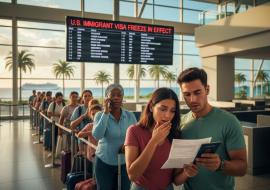The Travel Trendsetters that Will Usher in the New Year
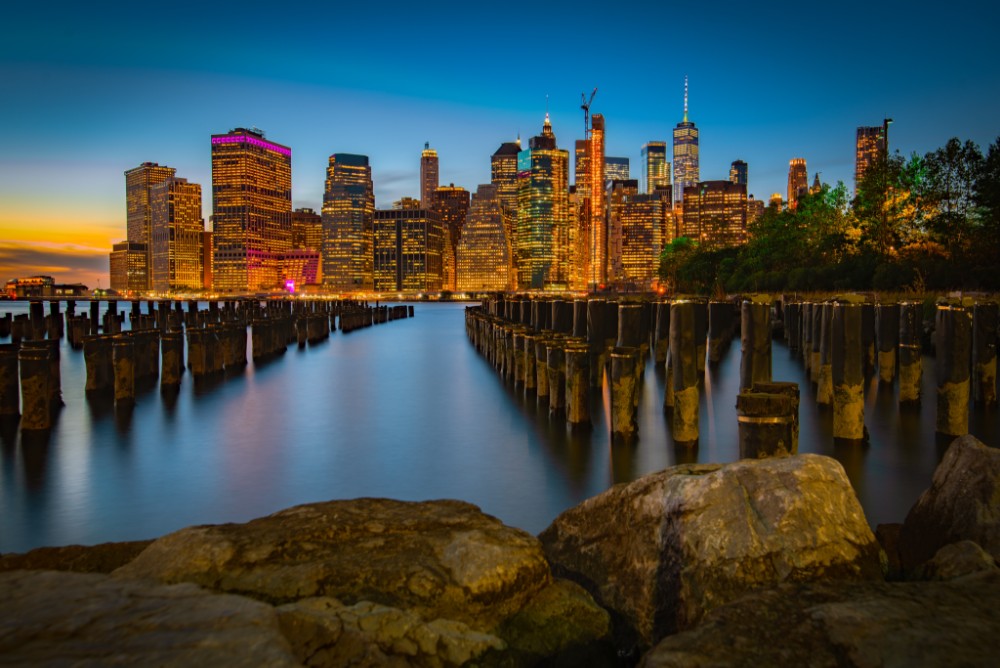
With the big holiday getaway about to kick off, new booking data revealed by Saber shows improved travel confidence and emerging holiday destinations of choice for global travelers. Saber's analysis reveals that booking windows for the holiday period are approaching pre-pandemic levels, while the number of Christmas and New Year bookings have skyrocketed compared to last year.
A deep dive into Sabre's booking trends (bookings made through the end of October) shows that 60% of bookings for the festive period were made in September and October this year, up from 55% in 2019. While a higher percentage of bookings were made closer to the holidays this year, the gap is narrowing between 2022 and 2019.
Booking windows can be an important metric in determining traveler trust, as a longer booking window can indicate higher trust. During the pandemic, there was a higher percentage of last-minute bookings, believed to be due to travel uncertainties and border restrictions.
Travelers were often less interested in booking early, as they weren't sure if the travel situation would change by the time their departure date arrived. Now, with a more predictable travel landscape, people are generally more willing to make long-term plans, as travel is more likely to proceed as planned.
As for international travel from the United States, where travel restrictions were lifted much sooner compared to other regions, a clear picture of recovery emerges. 29% of international holiday bookings were made during September and October 2022, compared to 38% in 2021 and 27% in 2019.
In Asia, 76% of all bookings, both domestic and international, for this year's end-of-year holiday were made in September and October, in line with the period when travel restrictions began to be further relaxed in the whole region. In 2019, around 55% of bookings were made in the same months.
The recovery in Asia-Pacific (APAC) has been particularly pronounced in Taiwan and Hong Kong, where travel restrictions have recently been eased. Hong Kong bookings started the third quarter at just 16% from the same period in 2019. At the end of the third quarter, the recovery was 29%. Taiwan presents an even more positive story, with the quarter starting with a 17% recovery and ending at 45%.
Saber's booking analysis shows that the majority of travelers are opting for destinations close to home for the upcoming holiday period, with 33% of global travelers choosing domestic travel, up from 27% in 2019. Trends target key include:
Nearly half (47%) of passengers traveling internationally from the United States, as part of a family or as a couple, have booked to go to Mexico or the Caribbean for this vacation.
67% of those traveling from Asia choose to stay within Asia. This was higher (70%) in 2019, and the drop is likely due to continued border closures in China. The main destinations for Asia are Japan, followed by Thailand, which accounts for about a third of the bookings.
It seems that some travelers who had previously gone to China have changed their holiday destination to Japan or Thailand, as Japan, Thailand and China together used to account for a third of the trips in 2019. Globally, the United States, Mexico and Japan are among the top destinations for both couples and families, in 2019 and 2022.
Globally, families are increasingly choosing to travel to the United Arab Emirates, while Thailand is a popular destination for those traveling as a couple. For those traveling from North America as a family or as a couple, the top emerging destinations are Costa Rica and Italy, respectively.
Vietnam and China were in the top 10 destinations globally in 2019, but both have fallen below the top 10 this year, giving way to the Dominican Republic and Canada.
While Thailand still remains in the top 10 global destinations for the festive season, it has fallen from number three to number five. Fewer travelers from India are choosing Vietnam this year, compared to 2019, while fewer Japanese travelers are choosing Thailand.







